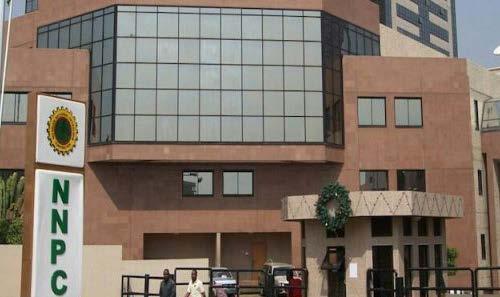
4 minute read
NNPC Earns N1.95tr from Sale of White Products in One Year
The Nigerian National Petroleum Corporation, NNPC, has disclosed that its downstream subsidiary, the Pipelines and Products Marketing Company, PPMC, earned N1.95 trillion from the sale of white products in one year, October 2019 to October 2020.
The figure is contained in the October 2020 edition of the NNPC Monthly Financial and Operations Reports, MFOR, released recently. White products are petrol, kerosene and benzene, among others.
Advertisement
A press release by the Group General Manager, Group Public Affairs Division of the Corporation, Dr. Kennie Obateru, said Premium Motor Spirit, PMS, also known as petrol, accounted for about 99.07% of the total sales with a value of over ₦1.9 trillion.
Total sales of white products for the period under review stood at 16.462.50 billion litres and PMS accounted for 16.344.36 billion litres, the report said. The NNPC also announced that the PPMC recorded a total of ₦158.04 billion from the sales of the white products in the month of October 2020, representing 92 percent over the N80.15 billion sales in September 2020.
In terms of volume, the October 2020 sales figure translates to a total of 1.224.54 billion litres of white products sold and distributed by PPMC within the period compared with 603.39 million litres in the month of September 2020.
This comprised 1.224.20 billion litres of PMS, 0.31 million litres of Automotive Gas Oil, AGO, also known as diesel and 0.033 million litres of Dual Purpose Kerosene, DPK.
Also, according to the NNPC, 23 pipeline points were vandalised in October 2020, representing about 10 percent increase from the 21 points recorded in September 2020. Of this figure, Mosimi Area accounted for 83 percent of the vandalised points while Port Harcourt Area accounted for the remaining 17 percent.
In the gas sector, the corporation said a total of 214.07 billion cubic feet, bcf, of natural gas was produced in the month of October 2020, translating to an average daily production of 6,908.34 million standard cubic feet per day, mmscfd.
The daily average natural gas supply to power plants increased by 8.60% to 745mmscfd, equivalent to power generation of 2,801 megawatts.
This 63rd edition of the MFOR highlights NNPC’s activities for the period of October 2019 to October 2020.
In line with the corporation’s commitment of becoming more accountable, transparent and driven by performance excellence, NNPC has continued to sustain effective communication with stakeholders through this report via publications on its website and in national dailies.
IOCs Fear That PIB May Deter Offshore Investment

International Oil Companies (IOCs) operating in Nigeria fear that proposals in the long-delayed Petroleum Industry Bill (PIB), will deter investment in new offshore projects, Bloomberg reports.
At least half of Nigeria’s total crude output is from offshore oilfields, helping to offset declining production from mature onshore assets. But recent discoveries have remained undeveloped in the face of regulatory and legislative uncertainty.
“Our review of the Petroleum Industry Bill shows that deepwater provisions do not provide a favorable environment for future investments and for the launching of new projects,” Mike Sangster, managing director of Total SE’s Nigeria unit, told lawmakers at a hearing in Abuja, the capital.
To boost new investment, the proposed law should grant deepwater oil projects full royalty relief for the first five years of production or a graduated royalty program, said Sangster, speaking on behalf of the Oil Producers Trade Section, a group of 30 producers including Total, Royal Dutch Shell Plc, Exxon Mobil Corp., Chevron Corp. and Eni SpA, which he chairs.
The bill — legislation that’s two decades in the making — will streamline how Nigeria’s energy assets are operated and funded. First presented in parliament in 2008, progress in passing the bill was held up by political wrangling and objections from international oil companies that say the government is demanding an excessive increase in revenues.
Nigeria, Africa’s top oil producer, is facing growing competition for new investments. Nigeria was able to attract only $3 billion, or 4%, out of the $70 billion committed on new projects in Africa between 2015 and 2019, Sangster said.
In a joint presentation, the OPTS urged lawmakers to remove a proposed hydrocarbon tax as producers will still be subject to companies income tax. In relation to gas, “the PIB should provide a clear path for transitioning to a free market-based pricing, not add additional compliance conditions on domestic gas delivery obligations as a precondition for export gas supply,” Sangster said.
The producers also worry the proposals don’t explicitly preserve the terms of existing oil investments.
“We recognize the government’s right to change laws but the PIB must explicitly preserve rights” for all existing oil leases, Sangster said. “Operators should be allowed to retain the entirety of their lease areas and new terms should apply to new contracts, licenses and leases.”
The persistent failure to pass the bill “has been a major drag” on the oil and gas sector, Ahmad Lawan, president of Nigeria’s Senate, said on Jan. 25 as he opened two days of public hearings on the proposed legislation. The delays have harmed the country’s ability to “attract both local and foreign capital” at a time of greater competition with other resource-rich nations, he said.










